History of the business
Rolling
Stock
Since the opening of the Canal Branch Works, we have accumulated superior technological knowledge and high levels of productivity over more than 100 years of history. We send various types of railway cars to locations around the world from our production sites in Japan and the United States, which are equipped with this technology and productivity.
-
1906/ Meiji 39
Establishment of the Unga Branch Works in Higashi-Shiriikemura in Kobe City (predecessor of Hyogo Works), manufacture of rolling stock commences
-
1907/ Meiji 40
First electric train manufacturing with the completion of three electric-powered wooden passenger cars for Nankai Railway (currently Nankai Electric Railway)
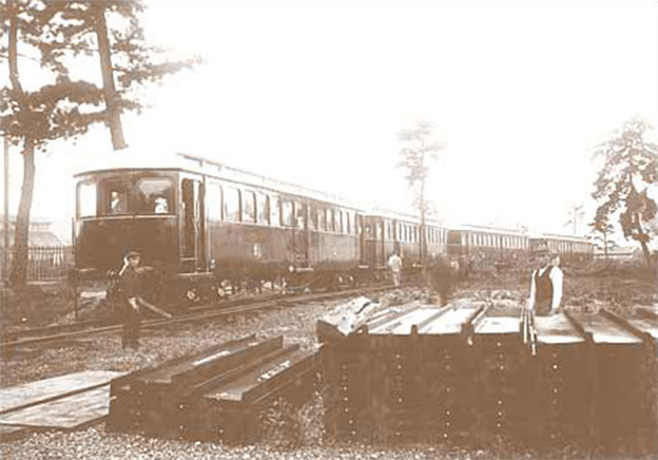
Three electric-powered wooden passenger cars for Nankai Railway
-
1911/ Meiji 44
Manufacturing of our first steam locomotive, Type 6700
We received an order from the Ministry of Railways for twelve Type 6700 steam locomotives, and we delivered the first unit. This steam locomotive was for an express passenger train and was the first produced in the private sector based on the plan for domestic production of steam locomotives after the government nationalized the railways.

No. 6704 steam locomotive
-
1918/ Taisho 7
Establishment of automobile department at Hyogo Works
President Matsukata saw the potential of automobiles while in the United States and Europe, and established an automobile department with the aim of domesticating production of automobiles. Manufacture was started on a four-ton truck that year, and five of them were delivered to the Japanese army in August of the following year.
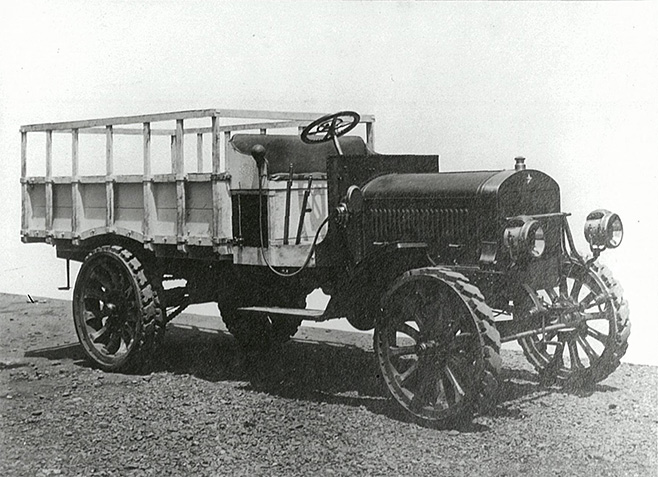
Four-ton automatic freight car for the Japanese army
-
1928/ Showa 3
Start of new Kawasaki Rolling Stock Manufacturing
Our company fell into financial difficulty due to factors such as World War I, the Great Kanto earthquake, and the financial crisis. Hyogo Works was spun off and Kawasaki Rolling Stock Manufacturing Company was established as a new company, making it possible to obtain a loan.
-
1934/ Showa 9
Delivery of new type of rolling stock in Japan and overseas
Pashina-type steam locomotive No. 979 becomes our 1500th steam locomotive to be manufactured.
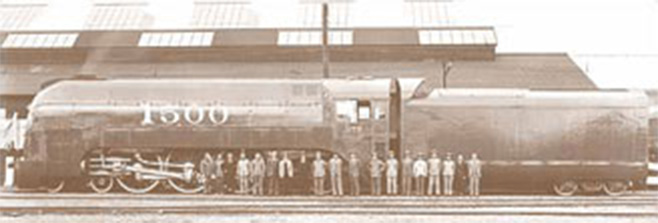
Pashina-type steam locomotive No. 979
-
1936/ Showa 11
Delivery of streamlined Moha 52-type four-car train to the Ministry of Railways
It was the first electric train of the Japanese National Railways to use roller bearings, and was said to be one of the best trains.
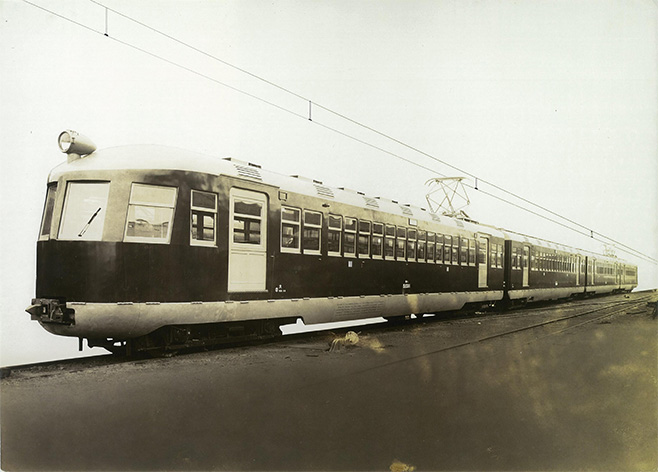
Streamlined Moha 52-type electric train
-
1945/ Showa 20
Playing a role in reconstructing the country after the war
Kobe suffered major air raids during the war, with 58% of the Kawasaki rolling stock factory buildings being burned down or destroyed, and 37% of the machinery becoming unusable.
Transportation maintenance was essential for postwar reconstruction, and so was the first to have reconstruction underway after the war. -
1957/ Showa 32
Delivery of the Type 3000 eight-car newest limited express electric train to Odakyu Electric Railway Co., Ltd.
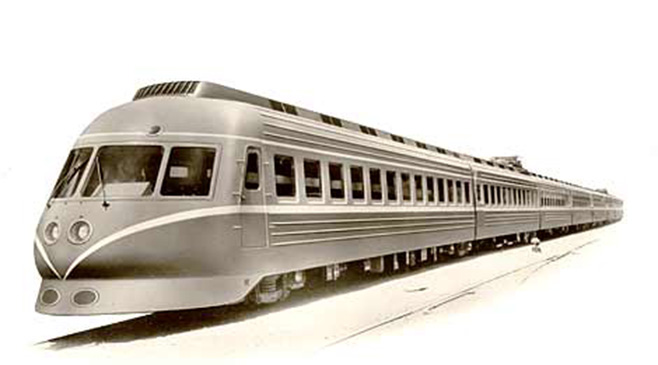
Type 3000 eight-car electric train
-
1958/ Showa 33
Delivery of “Business Express Kodama” eight-car train to Japan National Railways
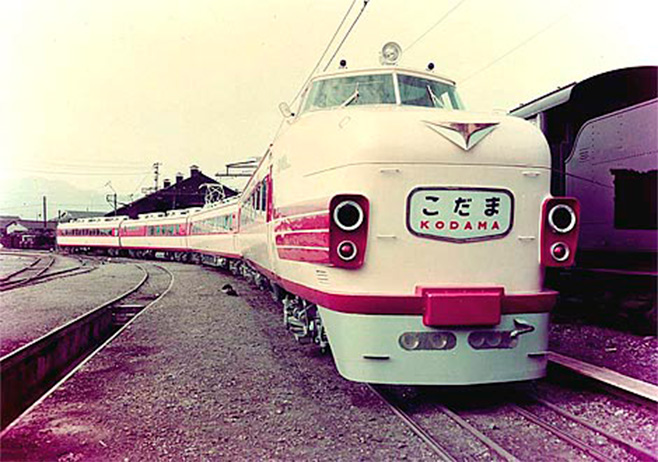
“Business Express Kodama” eight-car train
-
1962/ Showa 37
Developing new technology along with our steady progress in rolling stock production
We delivered Japan’s first all-aluminum alloy electric train to Sanyo Electric Railway Co., Ltd.
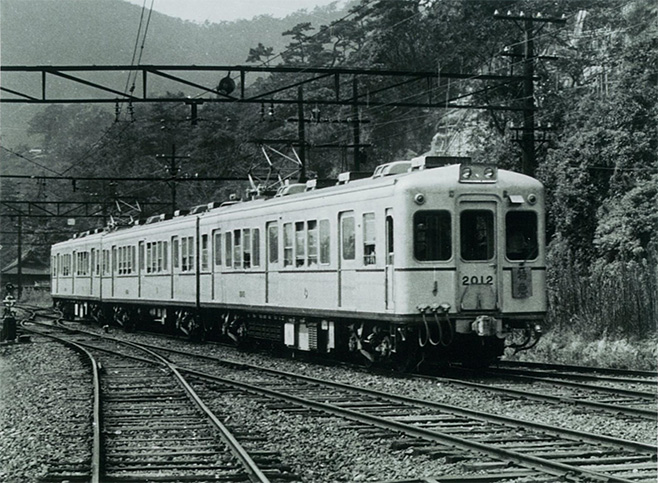
Sanyo Electric Railway Type 2000 aluminum alloy electric train
-
1964/ Showa 39
Delivery of Series 0 Shinkansen electric train to Japan National Railways along with the opening of Tokaido Shinkansen
With a top speed of 250 kph and a lightweight design, these trains were highly anticipated as the fastest in the world at that time.
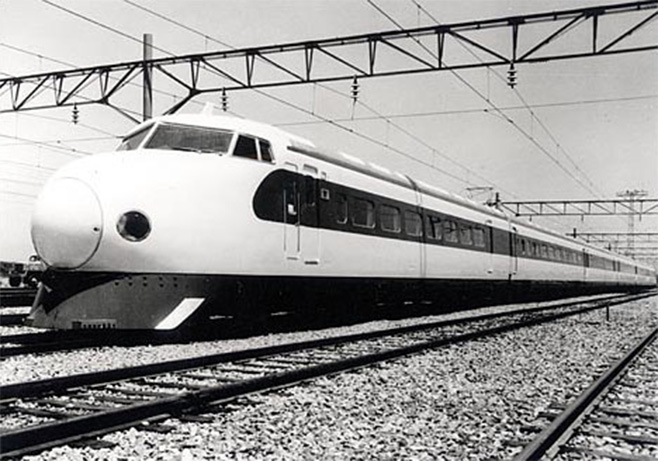
Series 0 Shinkansen
-
1969/ Showa 44
Merger of three Kawasaki companies
Kawasaki Heavy Industries, Kawasaki Aircraft, and Kawasaki Rolling Stock Manufacturing were merged and newly launched as Kawasaki Heavy Industries, Ltd.
The goal of this was to expand the scale of the company, consolidate capital, and make comprehensive use of human resources, technological capabilities, and facilities. -
1970/ Showa 45
Development of rubber-tired electric trains
We delivered Japan’s first guided rail type rubber-tired subway train to Sapporo City Transportation Bureau. Rubber-tired trains have superior performance when it comes to noise reduction, acceleration, and deceleration.
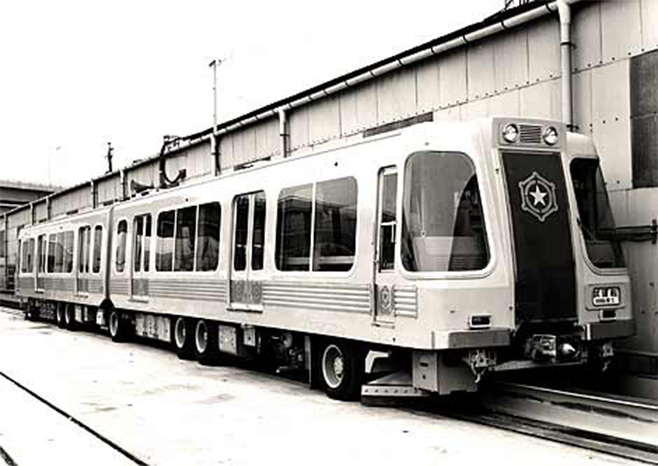
Japan’s first guided rail type rubber-tired subway train
-
1972/ Showa 47
Absorption merger with Kisha Seizo
Kisha Seizo was a pioneer rolling stock company at the time.
Absorbing Kisha Seizo strengthened the rolling stock department, and we became one of the top manufacturers in the industry. -
1980/ Showa 55
Birth of new KCV (Kawasaki Computer-controlled Vehicle) transport system
We completed Japan’s first new transit system, Kobe Port Liner.
Based on the development of rubber-tire trains, computer-controlled automatic operation became possible for urban medium-capacity transit systems.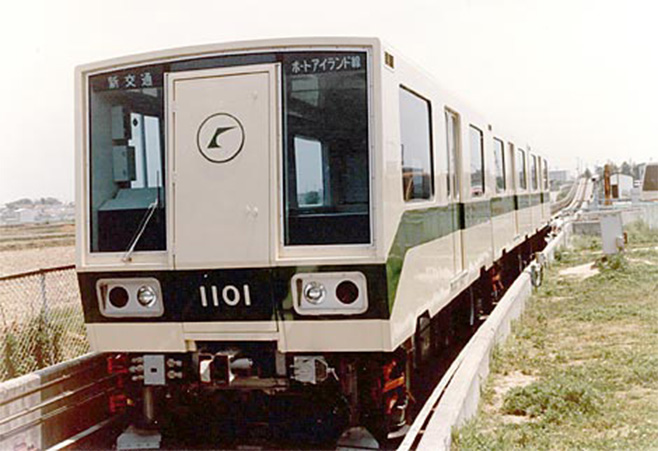
Kobe Port Liner, Japan’s first new transit system
-
1980/ Showa 55
Receiving large orders from the United States
We first started focusing on exporting to the United States from the late 1970s.
We delivered 141 Philadelphia streetcars, Japan’s first trains for the United States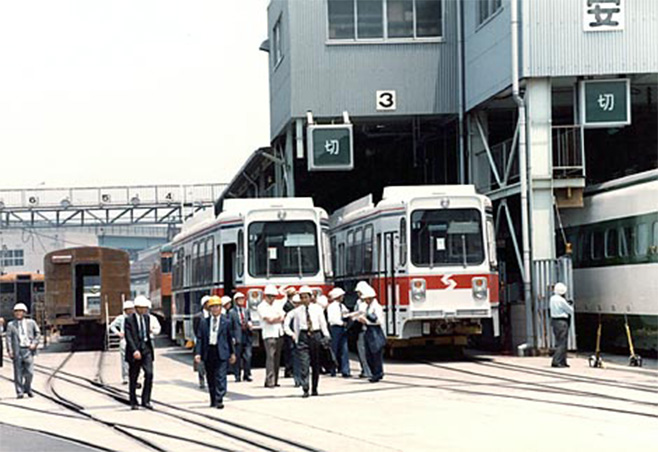
Philadelphia streetcar
-
1985/ Showa 60
Delivery of 325 subway trains (R-62) for the New York subway
At the time, it was the largest contract in the history of Japan’s railway car exports, and all trains were delivered by 1985.
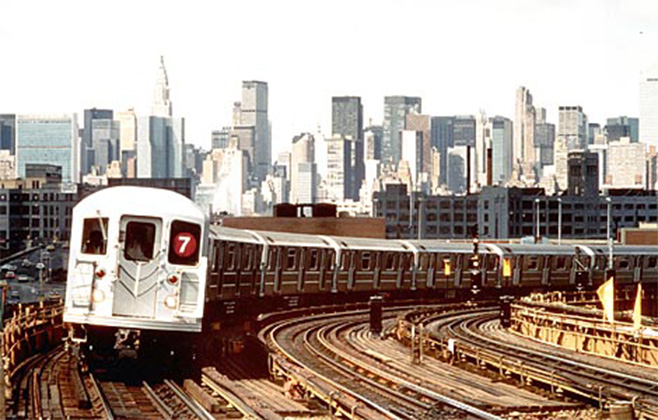
New York City subway train (R-62)
-
1985/ Showa 60
Strengthening of export system to the United States
Establishment of subsidiary in New York City (currently KRC)
-
1986/ Showa 61
Yonkers plant opens on New York City outskirts, operations start
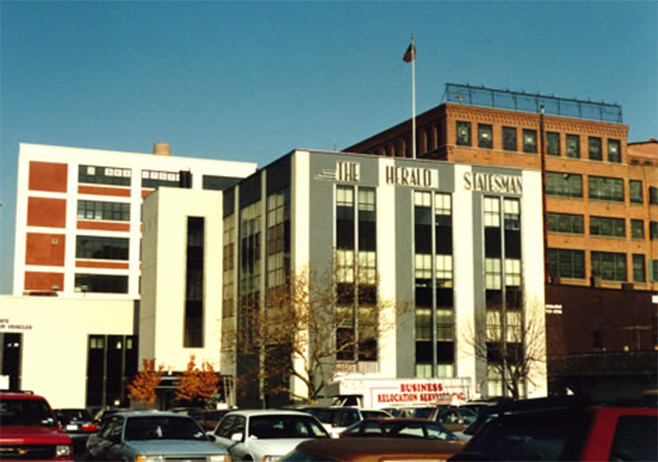
Yonkers plant
-
1988/ Showa 63
Delivery of large AC electric locomotive to the Ministry of Railways of the People’s Republic of China
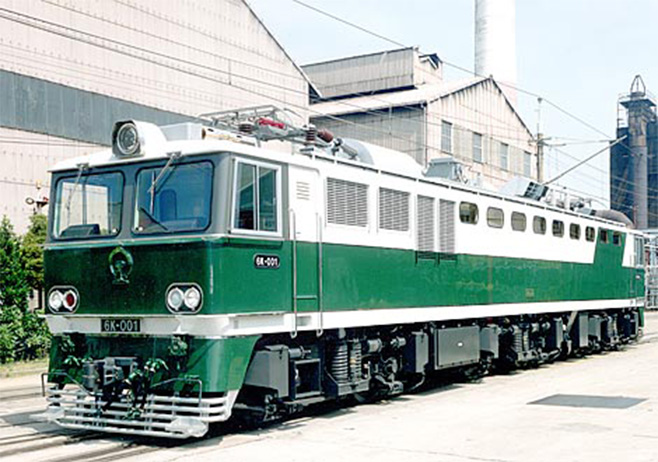
Large AC electric locomotive for Ministry of Railways of the People’s Republic of China
-
1989/ Heisei 1
Delivery of subway train for Singapore
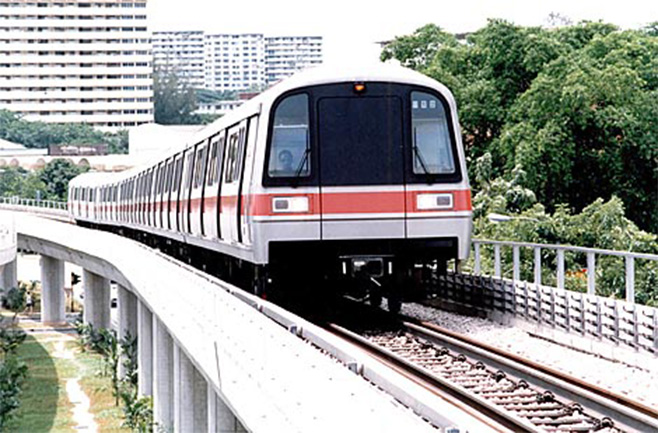
Subway train for Singapore
-
1990/ Heisei 2
Delivery of new Tokaido Shinkansen Series 300 trial train to Central Japan Railway Company
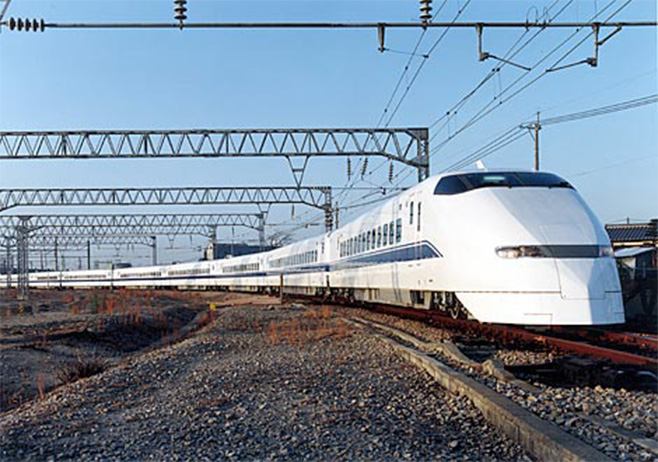
Tokaido Shinkansen Series 300 trial train
-
1990/ Heisei 2
Delivery of Boston double-decker commuter railcar to Massachusetts Bay Transportation Authority
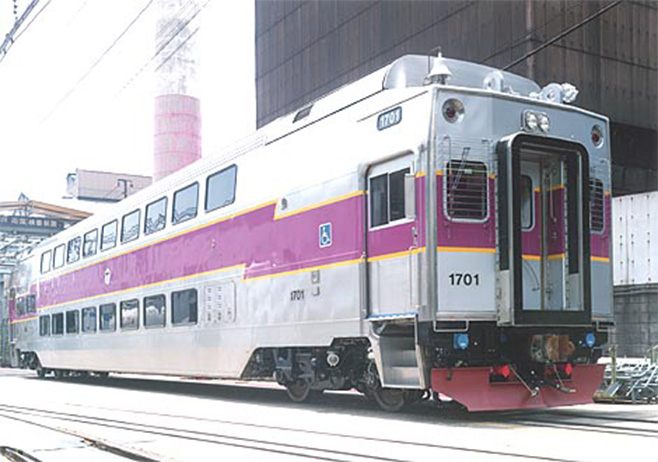
Boston double-decker commuter railcar
-
1994/ Heisei 6
Delivery of Tohoku and Joetsu Shinkansen Series E1 all-double-decker electric train delivered to East Japan Railway Company
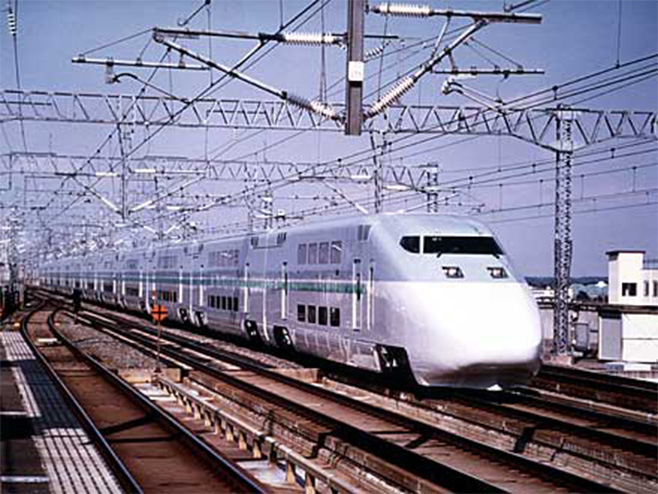
Tohoku and Joetsu Shinkansen Series E1 all-double-decker electric train
-
1996/ Heisei 8
Delivery of Sanyo Shinkansen Series 500 train to West Japan Railway Company
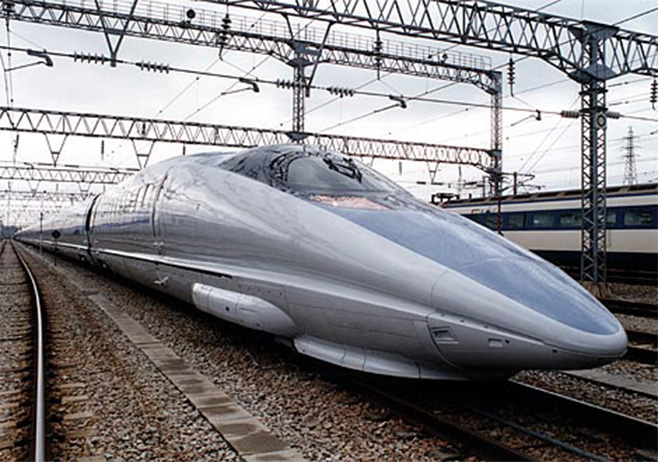
Sanyo Shinkansen Series 500 train
-
1997/ Heisei 9
Completion of products for overseas (North America)
Prototype double-decker commuter railcars are completed for the Long Island Rail Road in the United States.
Six units were delivered in 1997, followed by another 128 units between 1998 and 1999.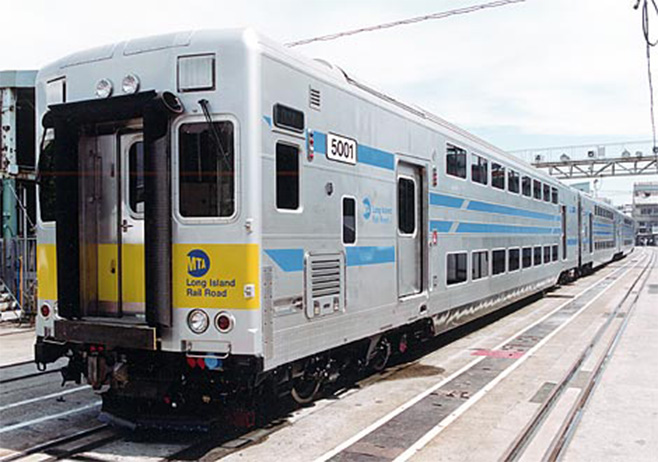
Prototype double-decker commuter railcar for the Long Island Rail Road in the United States
-
1997/ Heisei 9
Development of Shinkansen train cars
New features were introduced, such as an optimal nose design for a maximum speed of 285 kph, a rescue coupling structure to accommodate the extended nose, side cowls to reduce exterior noise, and vacuum toilets for increased comfort.
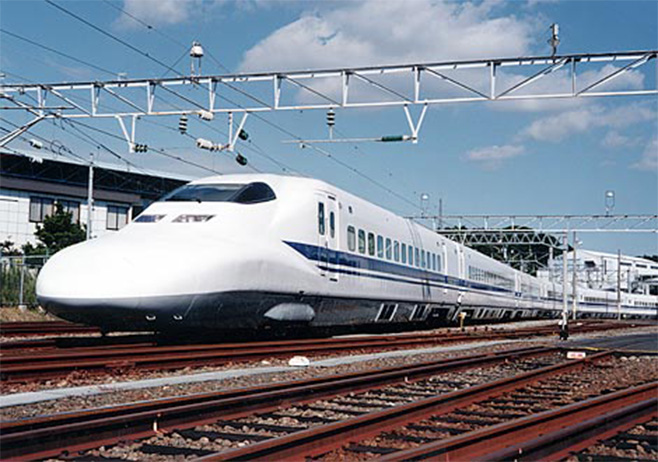
Tokaido Shinkansen Series 700 train
-
1997/ Heisei 9
Development of Series E4 Shinkansen train cars
Tohoku and Joetsu Shinkansen Series E4 all-double-decker electric trains delivered to East Japan Railway Company.
This was in response to replacing the aging Tohoku and Joetsu Shinkansen Series 200 trains, as well as the increased demand from passengers commuting to school or work.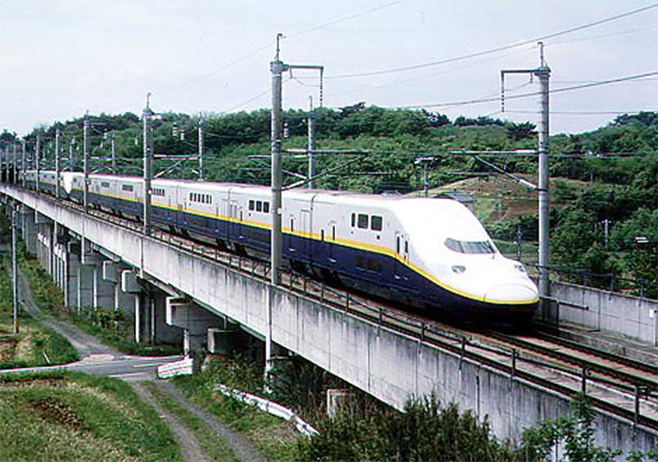
Tohoku and Joetsu Shinkansen Series E4 all-double-decker electric train
-
1997/ Heisei 9
Order received for 400 subway train cars (R-142A) for New York City Transit
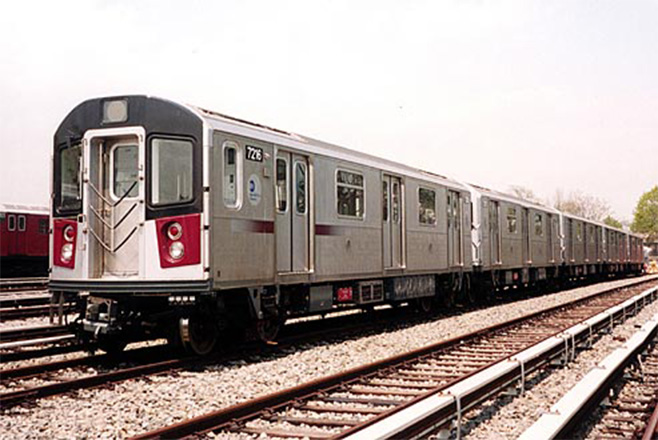
Subway train (R-142A) for New York City Transit
-
1998/ Heisei 10
Order received for 212 subway train cars (R-143) for New York City Transit
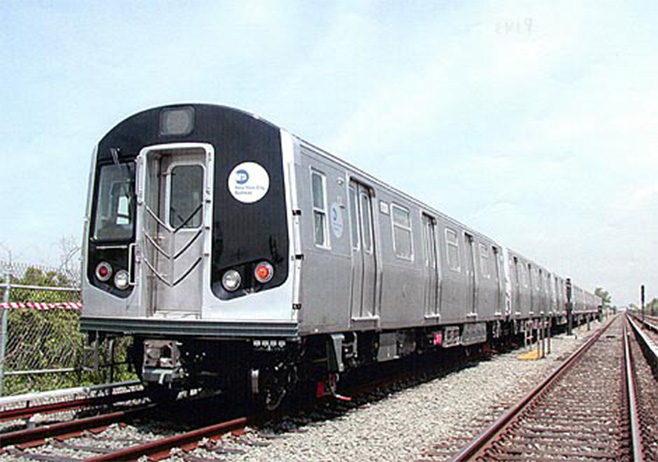
Subway train (R-143) for New York City Transit
-
1998/ Heisei 10
Order received for sixty-six subway train cars for Singapore
Around that time, orders for subway trains were received from countries in Asia, such as Singapore and Taiwan.
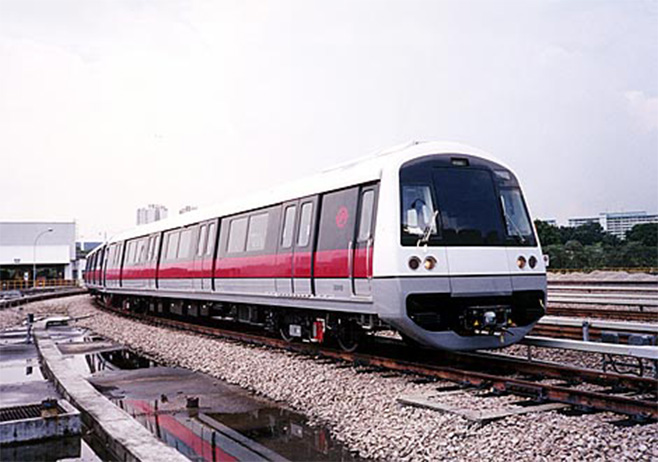
Subway train for Singapore
-
2001/ Heisei 13
Completion of the United States' only state-of-the-art, fully-integrated railcar manufacturing rolling stock factory
Rolling stock factory established within Kawasaki Motors Manufacturing Corp., U.S.A. (KMM), at the Lincoln plant.
The main objectives include achieving “Buy America” requirements (products to be supplied to the U.S. should be manufactured in the U.S., ensuring local employment), reducing the cost of ocean transport, lowering exchange rate risks, and improving production flexibility.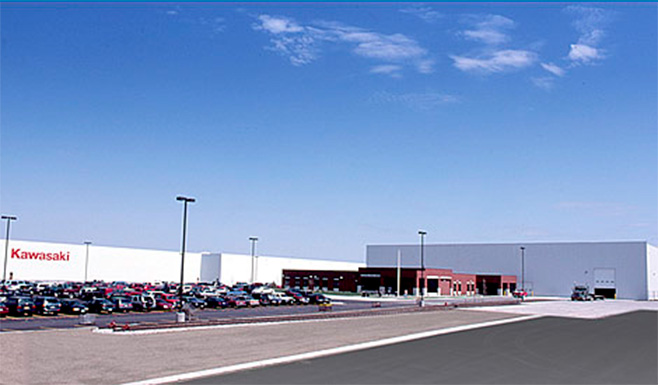
United States' only state-of-the-art, fully-integrated railcar manufacturing rolling stock factory
-
2004/ Heisei 16
Project to speed up existing railway lines in China
We received an order for 480 units of CRH2 Type electric trains from the Ministry of Railways of the People’s Republic of China.
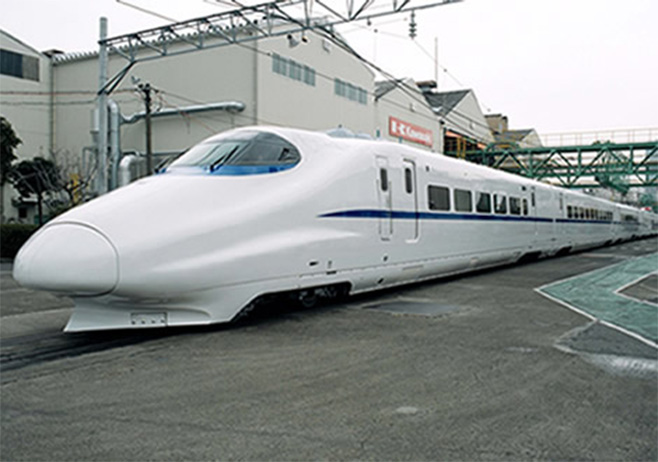
CRH2 Type electric trains for the Ministry of Railways of the People’s Republic of China
-
2004/ Heisei 16
Starting delivery of Taiwan High Speed Rail 700T trains
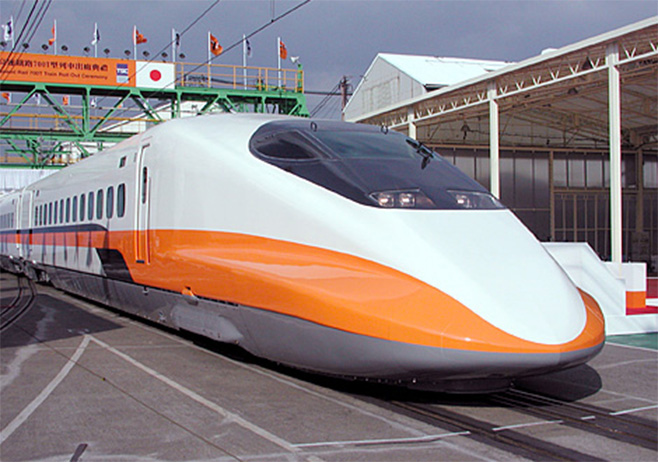
Taiwan High Speed Rail 700T train
-
2005/ Heisei 17
Delivery of Tokaido Shinkansen N700 series trains (pre-prototype car) to Central Japan Railway Company
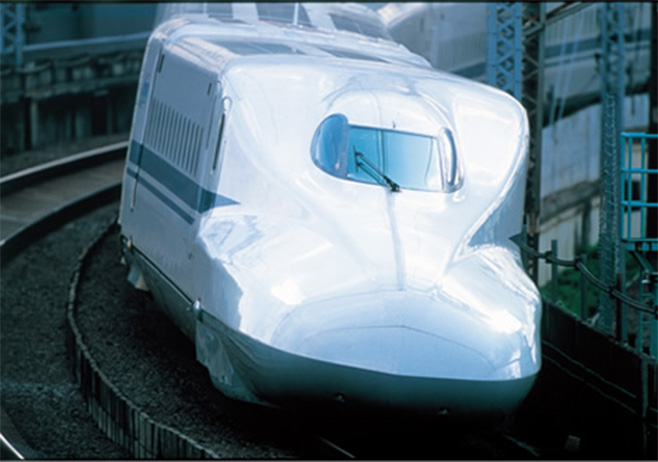
Tokaido Shinkansen N700 series
-
2005/ Heisei 17
Establishment of joint venture rolling stock engineering company in China (Qingdao Sifang Kawasaki Rolling Stock Technology Co., Ltd.)
-
2008/ Heisei 20
Delivery of Sanyo Shinkansen N700-7000 series trains (pre-mass production car) to West Japan Railway Company
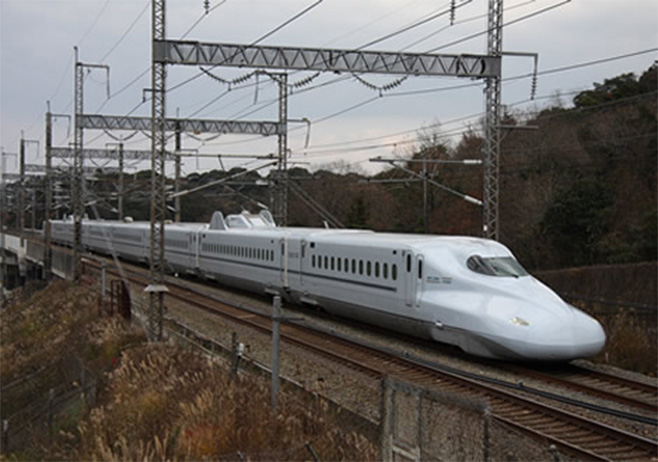
Sanyo Shinkansen N700-7000 series
-
2009/ Heisei 21
Delivery of Tohoku Shinkansen Series E5 trains (pre-mass production car) to East Japan Railway Company
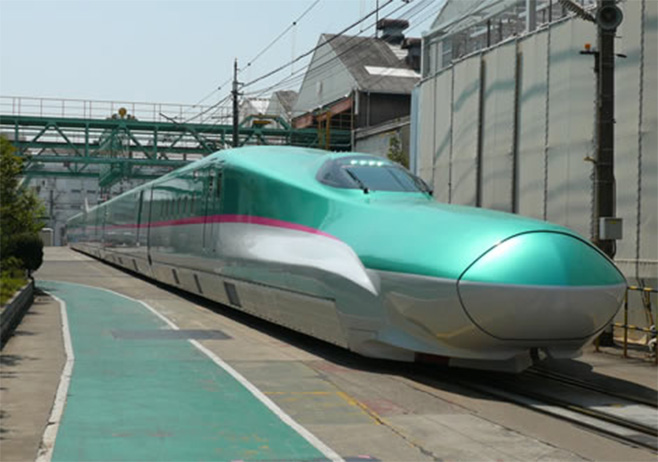
Tohoku Shinkansen Series E5
-
2009/ Heisei 21
Completion of 1000th electric locomotive
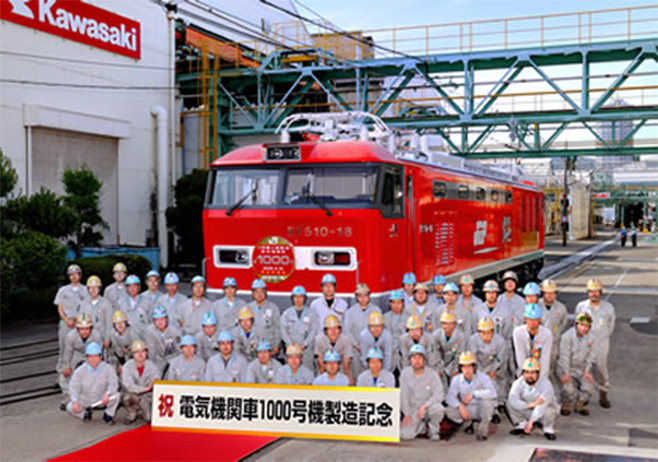
1000th electric locomotive
-
2010/ Heisei 22
Delivery of Akita Shinkansen Series E6 trains (pre-mass production car) to East Japan Railway Company
The interior and exterior design for the Series E6 was our company’s first Shinkansen design proposal to be adopted.
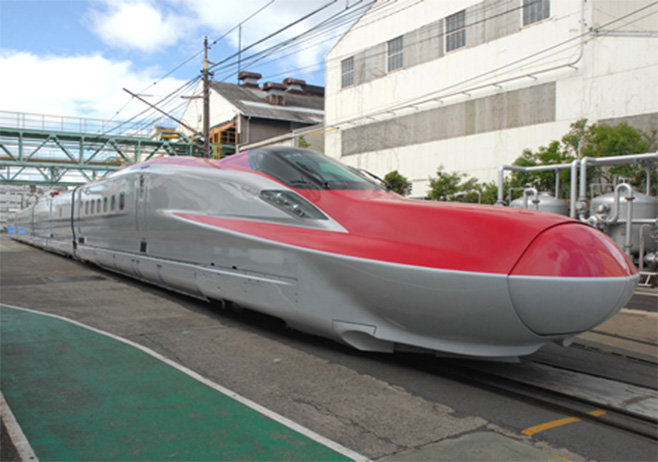
Akita Shinkansen Series E6
-
2010/ Heisei 22
Order received from Washington Metropolitan Area Transit Authority for new type of subway trains
We received an order from Washington Metropolitan Area Transit Authority for 428 units of the Series 7000 subway trains.
These trains improved passenger service by supporting extension plans, replacing existing trains, and alleviating congestion on existing trains. -
2013/ Heisei 25
Development of efWING rolling stock bogie
We developed the efWING, a next-generation rolling stock bogie, and the first in the world to have a CFRP frame with a suspension function.
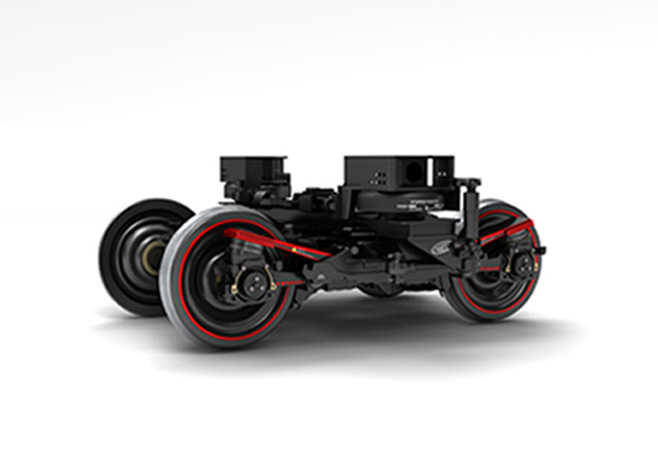
Rolling stock bogie
-
2013/ Heisei 25
Order received from Long Island Rail Road and Metro-North Railroad for ninety-two M9 commuter trains
-
2014/ Heisei 26
Order received from Singapore Land Transport Authority (LTA) for 364 MRT train cars for new line
-
2014/ Heisei 26
Delivery of Series E7 and W7 Shinkansen trains to Hokuriku Shinkansen
For the first time on a Shinkansen, all seats are equipped with electrical outlets, and all Western-style toilets are equipped with heated seats featuring washing and deodorizing functions.
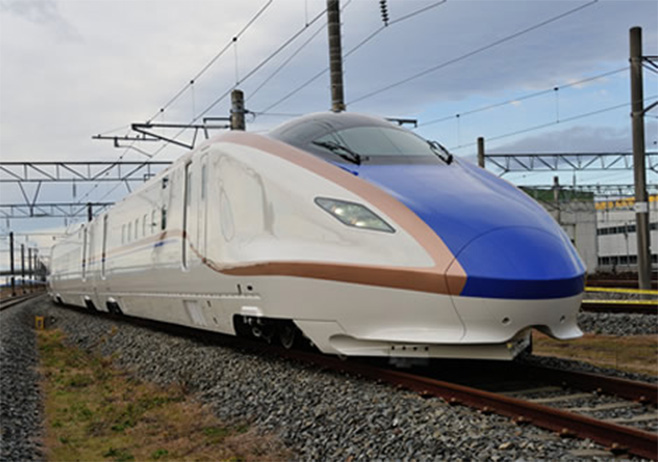
Series E7 and W7 for Hokuriku Shinkansen
-
2016/ Heisei 28
Production of luxury sleeper trains
The E001 series Train Suite Shiki-Shima was manufactured by our company and Japan Transport Engineering Company. We were responsible for the design and manufacture of the highly difficult front cars, as well as the intermediate motorized and attached trailer cars, including the suite rooms.
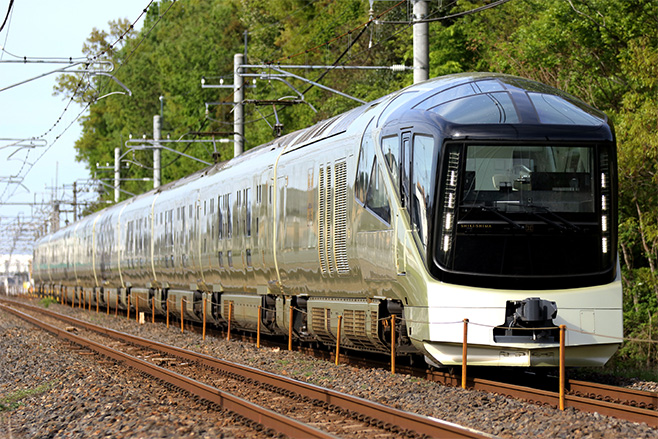
E001 series Train Suite Shiki-Shima
-
2016/ Heisei 28
Delivery of luxury sleeper train Twilight Express Mizukaze to West Japan Railway Company
-
2017/ Heisei 29
KMM rolling stock factory in Nebraska, United States reaches a total of 2,000 railway cars manufactured
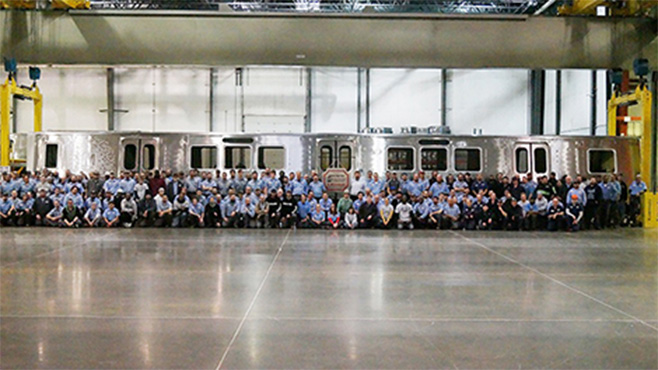
KMM reaches a total of 2,000 railway cars manufactured
-
2017/ Heisei 29
Cooperation agreement with Bharat Heavy Electricals Limited (BHEL), one of India’s largest heavy electrical manufacturers, in relation to stainless steel electric trains and high-speed trains
-
2017/ Heisei 29
Order jointly received with Mitsubishi Corporation for 144 railway cars and depot equipment for Dhaka Mass Transit Company
-
2021/ Reiwa 3
Shipping of first set of urban rapid transit railcars for Dhaka Line 6
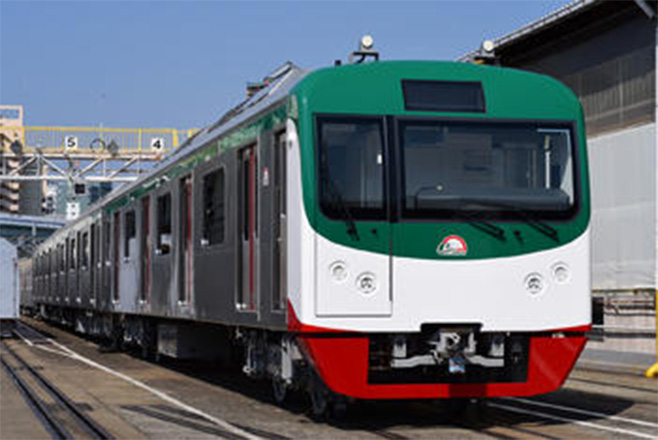
Urban rapid transit railroad car for Dhaka Line 6
-
2021/ Reiwa 3
Remote track monitoring services begin in North America
We equipped locomotives running on train lines with monitoring devices, and we provide constant track monitoring to support maintenance. This reduces the frequency of running dedicated inspection railcars and visual inspections, helping to save not only labor and energy, but costs as well.
-
2021/ Reiwa 3
Spinning off from Kawasaki Heavy Industries and establishment of Kawasaki Railcar Manufacturing Co., Ltd.
-
2022/ Reiwa 4
Opening of Dhaka MRT Line 6, the first urban rapid transit railway in Bangladesh
Phase 1 of Line 6, approximately 12 km of the first urban rapid transit railway in Bangladesh, was opened.
-
2024/ Reiwa 6
KMM achieves a total of 3000 railway cars manufactured
A total of 3000 railway cars have been manufactured for the United States since the rolling stock factory opened in 2001. A commemorative event was held to mark the occasion.
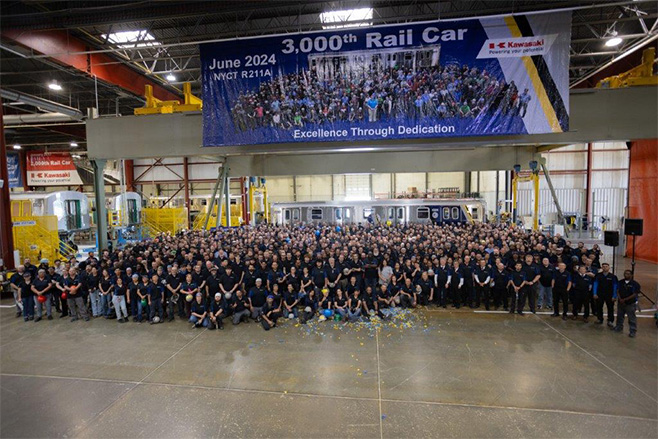
KMM achieves a total of 3000 railway cars manufactured